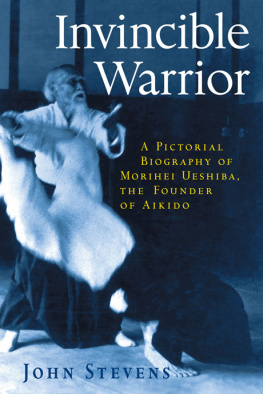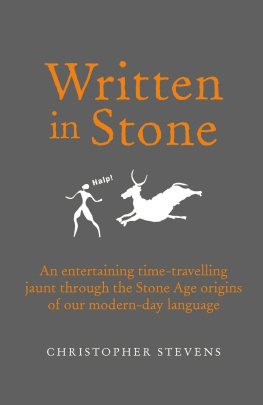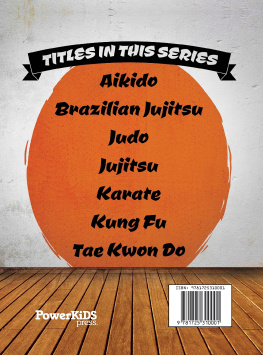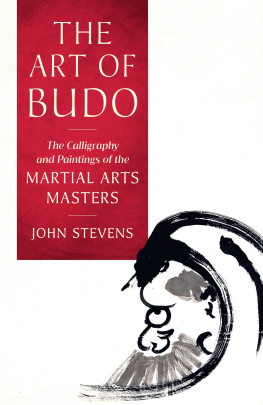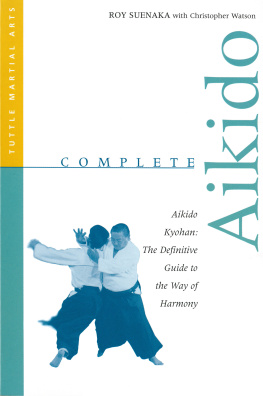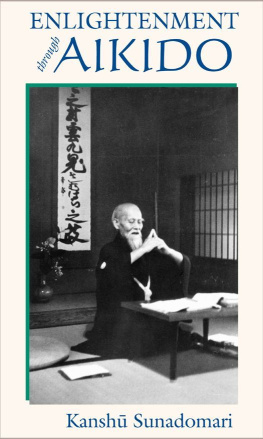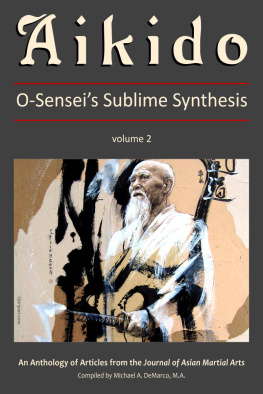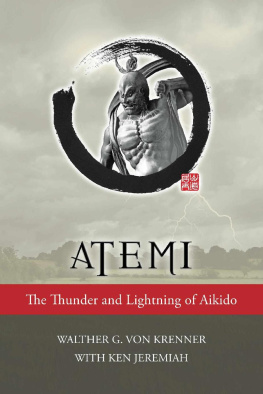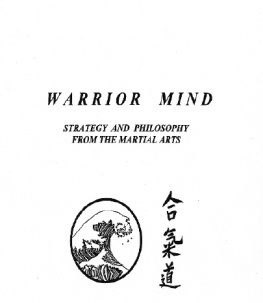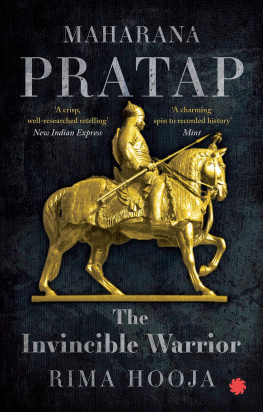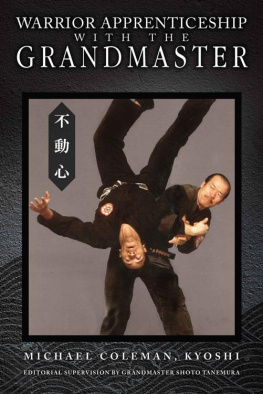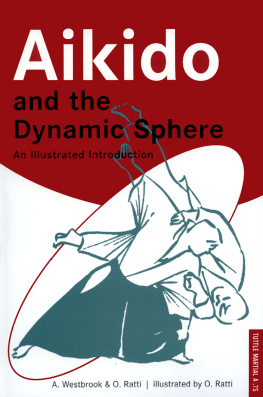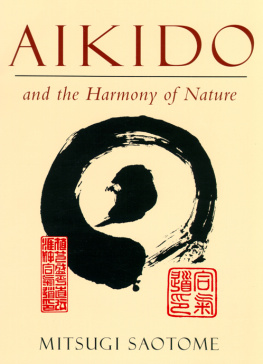ABOUT THE BOOK
Invincible Warrior tells the fascinating story of the life of Morihei Ueshiba (18831969), whose quest for the true meaning of warriorship led to the creation of the martial art called Aikido, The Art of Peace. Ueshibawhose name means abundant peaceis considered by many to be one of the greatest martial artists who ever lived. His documented ability to disarm any attacker, throw a dozen men simultaneously, and down and pin opponents without touching them has accorded his life legendary status.
Invincible Warrior presents the real story behind Moriheis achievement, illuminating the man and his message. Stevens describes the people, events, and ideas that influenced Ueshibas lifelong spiritual quest, which culminated in the development of unique teachings of Aikido. Illustrated with two hundred photographs of Morihei in action and filled with revealing anecdotes about his life and times, Invincible Warrior also offers valuable discussion of the founders conception of Aikido as a path of harmony and love, unifying body and mind, self and others, humans and the universe.
JOHN STEVENS is Professor of Buddhist Studies and Aikido instructor at Tohoku Fukushi University in Sendai, Japan. He is the author or translator of over twenty books on Buddhism, Zen, Aikido, and Asian culture. He has practiced and taught Aikido all over the world.
Sign up to receive our Martial Arts newsletter, which includes information about new books, special offers, discounts, and more.

Or visit us online to sign up at shambhala.com/emartialarts.
INVINCIBLE WARRIOR

AN ILLUSTRATED BIOGRAPHY OF MORIHEI UESHIBA, FOUNDER OF AIKIDO

JOHN STEVENS

SHAMBHALA
Boston & London
2014
Shambhala Publications, Inc.
Horticultural Hall
300 Massachusetts Avenue
Boston, Massachusetts 02115
www.shambhala.com
1997 by John Stevens
All rights reserved. No part of this book may be reproduced in any form or by any means, electronic or mechanical, including photocopying, recording, or by any information storage and retrieval system, without permission in writing from the publisher.
The Library of Congress Catalogues uses the hardcover
edition of this book as follows:
Stevens, John, 1947
Invincible warrior: an illustrated biography of Morihei Ueshiba, founder of Aikido/John Stevens.
p. cm.
Includes bibliographical references and index.
eISBN 978-0-8348-3016-5
ISBN-13: 978-1-57062-394-3
ISBN-10: 1-57062-394-5
1. Ueshiba, Morihei, 18831969. 2. Martial artists JapanBiography. 3. Aikido. I. Title.
GV1113.U37S955 1997
796.8092dc21
[B] 97-9234
CIP
BVG01
Invincible Warrior tells the fascinating life story of Morihei Ueshiba, likely the greatest of martial artists and a grand visionary whose quest for the true meaning of warriorship led to the creation of Aikido, The Art of Peace, a progressive and enlightened discipline practiced all over the globe. Invincible Warrior is a traditional biography that covers the three factors involved in Moriheis life: the outer factors (places, dates, teachers); the inner factors (purpose and nature of his quest); and the secret factors (his mystical experiences and spiritual accomplishments). Part I: The Life and Times of Morihei Ueshiba, is a revised and expanded version of material that originally appeared in Abundant Peace: Morihei Ueshiba, Founder of Aikido. This section concentrates on the people, events, and ideas that most influenced him. Part II: Morihei Ueshiba and the Creation of Aikido, is a visual documentation of his amazing career, from his youth to his final years. Part III: The Marvelous Techniques of Morihei Ueshiba, presents Moriheis prewar Aiki Budo and postwar Aikido techniques. Taken together, the three parts of this biography should paint an accurate portrait of Morihei Ueshiba, the invincible warrior.
I have focused exclusively on Morihei in this biography, and have not mentioned, except in passing, his many out-standing and colorful disciples. Their interesting tales should be told, but such material belongs more properly to a much broader survey of the History of Aikido.
Japanese names are given in the Western format, family name last. In Japan, outstanding figures are often referred to by their first names. In this book, I refer to the following masters by their first names: Morihei Ueshiba, Kumagusu Minakata, Sokaku Takeda, Nao Deguchi, and Onisaburo Deguchi. All Japanese martial artsAiki Budo, Aikido, Budo, Judo, Jujutsu, Karate, Kendo, Sumoare capitalized as proper nouns. Words such as dojo (training hall), which have become familiar to Western readers, are not printed in italics but all other Japanese terms are at the first occurrence.
I am very grateful to Kisshomaru Ueshiba for permission to reproduce photographs from the Ueshiba family collection, to Alan Nagahisa for providing photographs taken of Morihei when the master visited Hawaii in 1961, and to Charles Hill for photographs taken in Tanabe and Kumano, Japan. Heartfelt thanks go to Peter Turner, David ONeal, and Emily Bower of Shambhala Publications for their hard work on this project, and to my family, friends, and students for their constant support and encouragement.
PART ONE
M ORIHEI UESHIBA WAS BORN ON DECEMBER 14, 1883 (November 16 according to the old lunar calendar) in the castle town of Tanabe, Japan. Tanabe, about two hundred miles south of Osaka, is located along the coast of the Province of Kii (present-day Wakayama Prefecture) and lies at the foot of the Kumano Mountains. Kumano is Japans Holy Land, the sacred place where the Shinto gods descended to earth; the gateway to Amida Buddhas Pure Land is also believed to be hidden there. The entire district of Kumano is venerated as a mountain mandalahome, over the centuries, to a host of ascetics, wonder-workers, and sages who thrived on the pure air, fresh spring water, succulent fruit, and medicinal herbs of that blessed place and who refreshed body and soul in the soothing hot springs that dot the landscape. The grand shrines of Kumano and the sacred waterfall of Nachi are the meccas of Shinto, and every Japanese true believer, including the emperor, longs to make at least one pilgrimage to worship at those sacred sites and perhaps catch a glimpse of one of the Eight Great Dragon Kings who sport in the Nachi Falls. The Buddhist mecca of Mount Koya is also found in Kii. Kobo Daishi, patriarch of Tantric Buddhism in Japan, entered eternal meditation on Mount Koya more than a thousand years ago, but he remains a living presence in the areaeven today worthy souls are believed capable of catching a glimpse of the Great Master as he endlessly circles the pilgrim trail. Centuries ago, En-no-Gyoja, the Grand Wizard, practiced Taoist meditation techniques in the surrounding mountains and used his magic to fly from peak to peak; modern-day yamabushi (mountain ascetics) insist that En-no-Gyoja appears to them in vivid visions. It is said that colors and sounds can be perceived in their original state in Kumano, and that ascetic practices conducted there result in unparalleled clarity of mind and clairvoyance. In the year of Moriheis birth one such yamabushi named Jitsukage leapt from the top of towering Nachi Falls as a final act of
Next page
